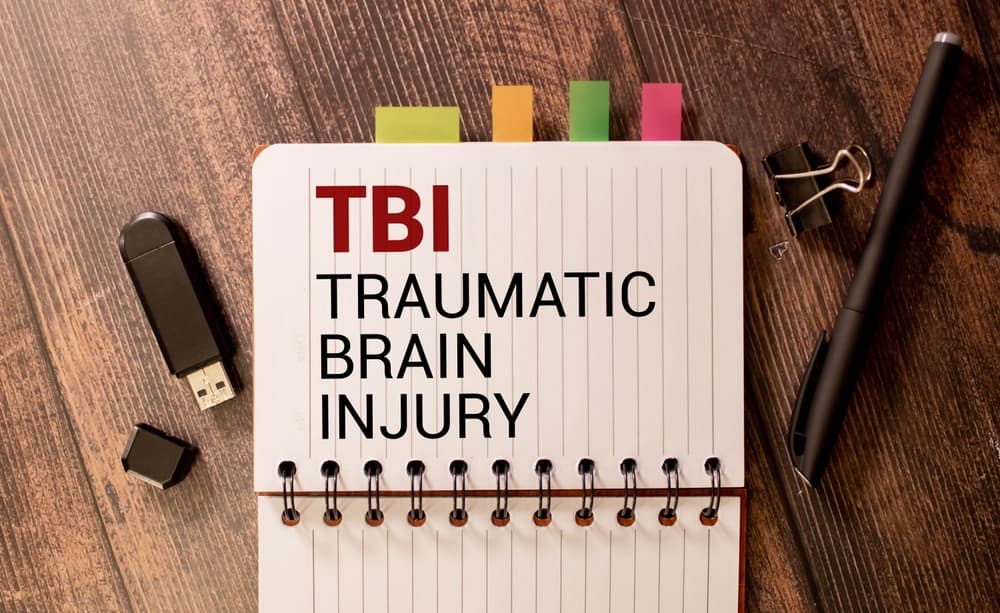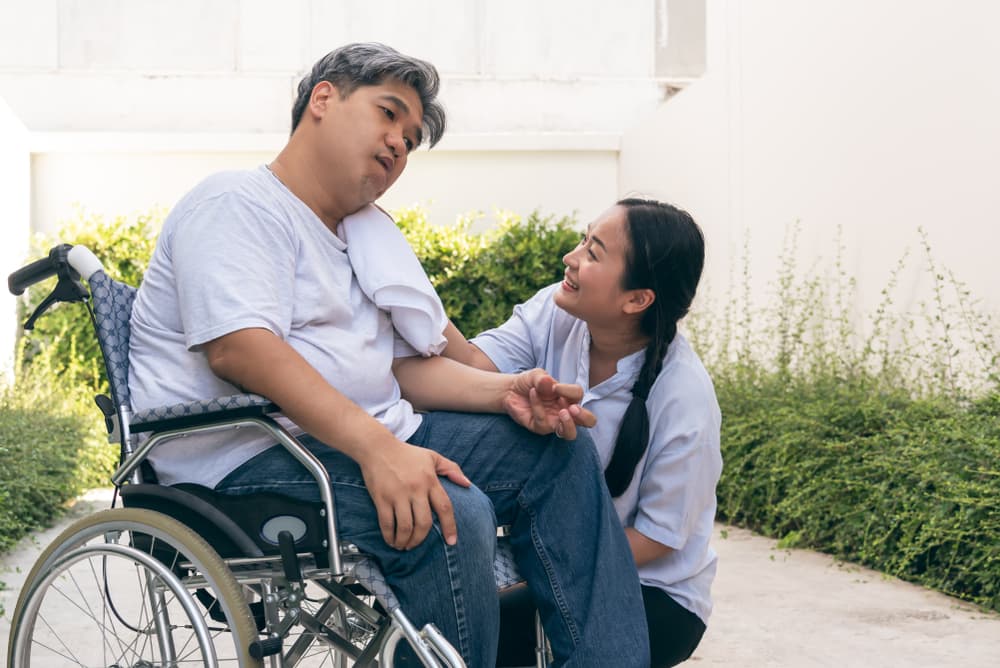Traumatic brain injuries (TBIs) can affect an individual's memory and ability to function, sometimes for the rest of their life. An individual who suffers a TBI disability in an accident may also experience ongoing headaches, such as from post-concussive migraine syndrome, along with painful symptoms. They also have difficulty caring for themselves.
In many cases, a negligent party causes accidents and TBIs. In those circumstances, an individual who suffers a TBI may file a personal injury claim or lawsuit against the at-fault individual or entity, seeking compensation.
If you or someone you love suffered a TBI disability in a recent accident, consult with an experienced Chicago traumatic brain injury attorney about your legal options. Your attorney can review the circumstances of your accident, determine your eligibility for filing a claim or lawsuit, and pursue the full monetary recovery you deserve.
First, a lawyer can start gathering important documentation, including medical documentation, for your personal injury claim.
Once your medical treatment concludes, your lawyer can submit those documents to the handling insurance company adjuster and negotiate for fair settlement compensation on your behalf.
If the insurance company refuses to take your TBI disability seriously and make an appropriate monetary offer, your attorney can fight for your rights in the court system and, if necessary, take your case to a civil jury trial, mediation session, or binding arbitration proceeding.
Unlike the at-fault party's insurance company, your attorney will be your advocate throughout the entire process, working tirelessly to pursue and recover the financial compensation you need for your accident-related losses.
Schedule a Free Initial Consultation Today!
Types of Accidents That May Result in a TBI Disability
When other individuals or entities behave in a manner that is reckless, careless, or negligent, they may cause an accident, which in turn leads to a severe head injury or disability.

Serious head injuries are especially likely if an accident victim strikes their head on a hard surface, such as the ground, in their accident. Severe head injuries also occur in motor vehicle accidents when a car operator or passenger strikes their head on something inside their vehicle, like the windshield, door, window, steering wheel, or headrest.
Some of the most common types of occurrences that are likely to cause a traumatic brain injury disability include:
- Slip-and-fall accidents that occur on someone else's premises, especially where the accident victim strikes their head on the ground
- Commercial truck accidents
- Pedestrian accidents
- Passenger vehicle accidents
- Boating accidents
- Escalator and elevator accidents
- Motorcycle and bicycle accidents
- Bus accidents
- Train accidents
- Mass transit accidents
- Other falls from heights
If you or a person you love suffered a TBI disability in one of these occurrences that resulted from someone else's negligence, speak with a skilled personal injury lawyer as quickly as possible.
Your attorney can investigate the circumstances of your accident and, if necessary, retain a certified accident reconstructionist who can visit the occurrence scene, take measurements, obtain forensic evidence, speak to witnesses, and determine exactly how the accident occurred.
Your lawyer can then file a claim with the appropriate insurance company and work to secure the fair monetary damages you deserve for your head injuries.
Extensive Medical Treatment for a TBI
After suffering a TBI disability in an accident that was someone else's fault, the accident victim may need to undergo significant and ongoing medical treatment for their injuries.
In addition to consulting with a primary care doctor and/or going to the emergency room after the occurrence, an accident victim must follow through on all recommended medical treatment.
That treatment may include:
- Consulting with a neurologist or other medical specialist
- Undergoing pain management to keep symptoms under control
- Taking prescribed medication
- Attending follow-up medical appointments regularly.
By completing your medical treatment regimen, you show the at-fault party's insurance company that you suffered a serious head injury and that your injury is deserving of significant financial compensation.
However, if there are lengthy gaps in your medical treatment, the insurance company is less likely to take your injury seriously and may even argue that you are exaggerating your symptoms.
Also, treating your head injury symptoms continuously increases your chances of achieving a favorable medical recovery.
While you continue treatment for your TBI disability, your attorney can take the steps necessary to secure the monetary compensation you deserve.
Legally Proving a TBI Disability
To receive monetary compensation for a TBI disability, you must satisfy your legal burden of proof. Specifically, you must show that the at-fault individual or entity responsible owed you some legal duty of reasonable care.
The at-fault party's legal duty will depend largely upon the occurrence that led to your TBI.
For instance, if you suffered your TBI in a slip-and-fall accident on someone else's property, the property owner likely owed you a duty of reasonable care to protect against hazardous conditions on the premises. They also likely had a duty to warn about or repair a known and dangerous condition within a reasonable time.
Next, the injured TBI victim must show that the at-fault individual or entity violated their legal duty of care by acting unreasonably. For example, in a slip-and-fall accident, the victim must demonstrate that the accident occurred because the property owner failed to clean up a spill or repair some other dangerous condition or defect (or warn about that condition) within a reasonable timeframe.
Additionally, the accident victim must demonstrate that their accident occurred directly due to the other party's negligent actions or inactions. Finally, the accident victim must show, through medical testimony, that their TBI disability directly resulted from the subject occurrence.
Establishing that a TBI is directly related to an occurrence is sometimes difficult and will almost always require expert testimony. Specifically, a medical provider can show that your TBI directly resulted from the subject occurrence.
Your medical provider can also establish if your TBI injury or disability is permanent. As a result, you may experience ongoing headaches, memory loss, and other symptoms for the rest of your life.
A knowledgeable personal injury attorney in your jurisdiction can retain the experts necessary to satisfy your legal burden of proof in a case and recover the full monetary compensation you need and deserve for your TBI disability.
Recovering Monetary Compensation for a TBI Disability
If you can satisfy the legal burden of proof in your case and with the help of a lawyer and expert medical provider, you may receive monetary compensation for your TBI.
The specific types and amounts of damages you may recover for your TBI disability will depend largely upon the circumstances surrounding the occurrence, the nature and extent of your TBI disability, and the permanent impairments that you suffered from your disability, if any.

Other factors that will affect the size and scope of your monetary award may include the extent of your medical treatment, the overall cost, and your ability or inability to work after the occurrence due to your TBI disability.
First, your personal injury lawyer can pursue monetary compensation for your medical expenses and other related losses stemming from your head injury. If a medical provider has determined that you suffered a permanent TBI disability and that you may need ongoing medical treatment, then those anticipated medical costs may become part of your personal injury claim or lawsuit.
Additionally, you might be in a position to recover monetary compensation for your lost earnings if you had to miss time from work to seek medical treatment after your accident. Furthermore, if a medical provider determines that you cannot work in the future or must switch to a lower-paying job, you may receive financial compensation for loss of earning capacity.
In addition to recovering these out-of-pocket costs, you can pursue compensation for your intangible losses. These types of damages are called non-economic damages. The cap on non-economic damages typically varies from jurisdiction to jurisdiction.
Still, in general, accident victims may be eligible to receive monetary compensation for all the following: mental distress and emotional anguish, inconvenience, diminished quality of life, loss of the ability to use a body part (for example, paralysis), permanent cognitive impairments, past and anticipated pain and suffering, and long-term or lifetime care costs.
In some jurisdictions, an individual who suffers a head injury may be eligible to receive punitive damages. A punitive damage award is available when the at-fault individual or entity behaves particularly recklessly or egregiously.
The ultimate purpose of awarding punitive damages to an accident victim is to punish the wrongdoer who caused the accident and to discourage other individuals and entities from committing wrongful acts that are similar in the future.
A knowledgeable personal injury attorney in your jurisdiction can calculate the financial compensation you should receive for your TBI disability.
Your lawyer will then handle every step of the settlement negotiation and claims-filing process for you, helping you to maximize your total monetary damage award.
Filing a Timely TBI Disability Claim
If you sustained a TBI or other serious head injury in an occurrence that was not your fault, a knowledgeable personal injury lawyer will have the legal experience to file a timely claim or lawsuit on your behalf.
When filing a claim, your attorney will gather various documents, including medical bills, medical treatment records, police reports, incident reports, video camera footage, property damage photographs, and imaging studies. Your attorney can then submit all these documents to the insurance company adjuster as a settlement demand package.
During settlement negotiations, your lawyer will aggressively advocate on your behalf. Many insurance companies look for any excuse to try to deny liability for a TBI disability, such as by arguing that the accident victim's head injury resulted from some pre-existing medical condition or circumstance rather than from the subject occurrence.
The insurance company may also argue that the accident victim is exaggerating their symptoms and that the actual head injury is much less serious than the accident victim claims.
Your attorney can combat the insurance company's tactics by pointing out various expert reports and pertinent medical treatment records. If the insurance company still refuses to take your TBI case seriously, your lawyer can promptly file a lawsuit in court well within the statutory deadline. Your lawyer can then litigate your case.
Litigation involves much more than going to court. Your attorney will follow all procedural rules, engage in discovery and motion practice, and continually negotiate to settle the lawsuit out of court. Only if the case does not settle will a trial be necessary.
Call a Personal Injury Attorney About Your TBI Disability Right Away
TBI disabilities can lead to lifelong complications, impairments, pain, and suffering. If you or a person you care about suffered one of these injuries in a recent accident that resulted from someone else's negligence, you have legal rights and options to consider.
First, get the medical treatment you need and complete your treatment regimen. Next, retain an experienced personal injury attorney to represent you throughout your case, pursuing the fair monetary recovery you deserve for your injuries.
Your personal injury lawyer in Chicago can advocate for you every step of the way, answer your legal questions, and work to maximize your total monetary recovery, either through favorable settlement compensation or a favorable litigation result that you achieve at a civil jury trial or alternative dispute resolution (ADR) proceeding.
Your peace of mind begins with a free legal consultation. Experienced personal injury lawyers offer complimentary consultations, providing an opportunity for you to discuss your case, ask questions, and understand your legal options at no cost to you. This commitment to accessibility reflects their dedication to putting your needs first.
Take the first step toward seeking justice and compensation for your injuries by scheduling a free consultation with an injury law firm near you today. Your path to financial recovery begins with a conversation, so do not delay in scheduling yours.



